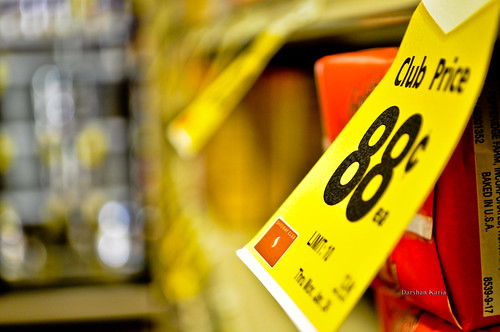The $64,000 question: How much is my book worth?
Pricing is one of the most important decisions you will make as a self-published author. The right price can sell more books, earn you more reviews and (most importantly) cover your printing costs. However, asking yourself how much your book is worth is a subjective question to which there is no right or wrong answer. To an avid reader who loves independent authors, it may be worth $15, but to a more casual reader who hasn’t read many self-published books, it may only be worth $5.
Of course, to you it’s worth a stack of gold bricks because you’ve poured your time, energy and talent into it, which is why it’s so important to get that number just right. That’s why we’ve put together a list of 7 important questions with concrete answers that can help you decide the right price for your book.
1: Who is your target market?
I know it seems like we harp on target markets a lot, but that’s because it’s REALLY IMPORTANT. If you’ve done your target market research before writing like we advise, now is the time to pull that research out again and use it to determine your book’s price. Teenagers, soccer moms and business professionals will value books at different prices, so it’s important to know which segment of the market you are trying to sell to.
2: How will you print your book?
Picking a printer is a crucial step to determining your price. Self-publishing means that you are responsible for paying the printing costs, so you want to be certain that your book price is going to cover that for you.
3: Where will you sell your book?
Most likely, you’ll want to sell your book online through some of the major retailers like Amazon and Barnes & Noble. Although there is a benefit of greater exposure with online booksellers, the downside is that your profit will be cut short as your book is picked up at wholesale cost and sold at a rate that is lower than what you set. You may also want to take into account that online sales (even on your own personal website) will involve shipping costs. Your customers will factor that into their purchase and you should, too.
4: What are your marketing costs?
In addition to your printing costs, you’ll also want to take into account your marketing costs. This means of course that you’ll have to plan your marketing campaign out prior to publication (which we highly recommend anyway!). From website costs (domain name, hosting, design) to advertisements and free promotional copies of your book for reviewers, these are all costs that you have to pay for as a self-published author, which means you’ll want to earn them back through your book sales.
5. How many copies can you expect to sell?
This is probably the most important thing to keep in mind when you’re setting your book price. Obviously, you’re not going to recoup your investment in your book with one sale, but how many books can you expect to sell? When will you break even and start earning a real profit? On average, self-published books sell between 100 – 200 copies. If you have an existing following and a strong marketing campaign it’s possible to sell more, but for setting your costs you should divide them out over the sale of about 100 books to figure out your average cost per book. Anything sold over 100 copies then becomes additional profit for your pockets (or your next book).
6. How will you convince readers to pay the price?
No matter what price you set for your book, you will face an uphill battle in convincing readers to purchase a title from an unknown, self-published author. A professional website, great marketing and social media are crucial to selling yourself to potential readers. We also advise providing a lengthy sample of your book on your website (or Amazon.com if you’re selling your title there) so that readers can take a peek at your writing talent and be enticed to read more.
7. When can you change the price of your book?
If sales don’t go as expected after you release your book, it may be necessary for you to change your pricing strategy. Some printers will allow you to do this (sometimes for a cost, sometimes for free), but keep in mind that it might take some time for this pricing change to trickle down to your retailers like Amazon and Barnes & Noble.
What about pricing eBooks?
You’re probably wondering how the above questions related to the pricing of your eBook, right? Well, we’re working on a mini eBook of our own that will provide more information on paperback pricing as well as eBook pricing. It seems to be an issue that comes up often within our network of self-published authors and we want to provide you with the best tips and advice possible.
Share your thoughts with us!
In addition to being authors, most of us are avid readers as well–so share with us your experiences from both sides of the book when it comes to pricing! We always love to hear from you, so voice your views in the comments or reach us on Twitter @duolit.
Good luck with your writing projects to those who celebrate it, may shamrocks and green beer abound for you on St. Patrick’s Day!


 We're
We're 









Pingback: Ashly Lorenzana | Pre-Publication Checklist for Independent Authors()
Pingback: Wise, Ink. | The 11 Key Questions Every Indie Author Must Know about the Competition()